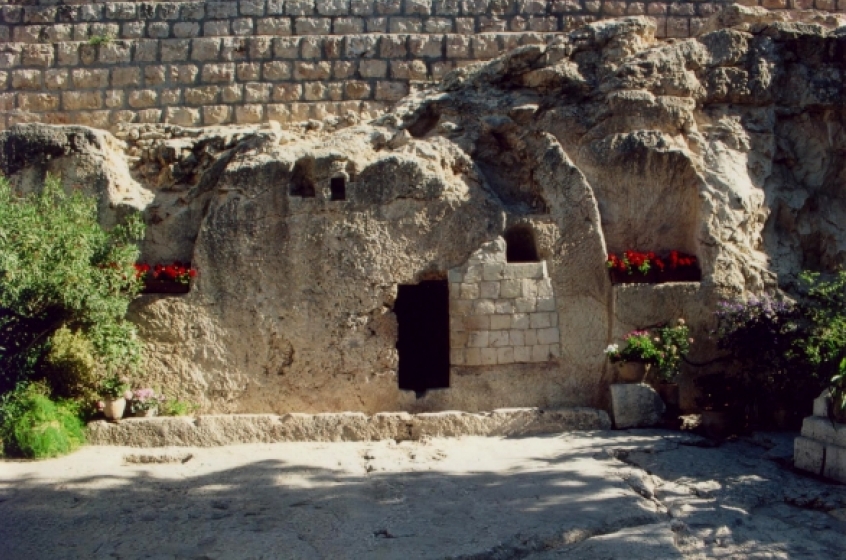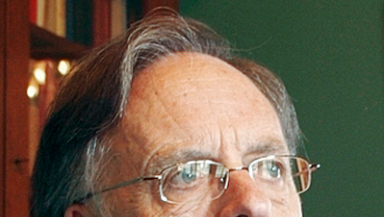This article has been updated.
The Archbishop of Canterbury's temporary representative to the Vatican – the previous one resigned after an accusation of sexual misconduct – turns out to be someone whose belief in the physical resurrection of Jesus is in question.

Australian cleric Dr John Shepherd, who was Dean of Perth from 1990-2014, said in an Easter sermon in 2008: 'It's important for Christians to be set free from the idea that the resurrection was an extraordinary physical event, which restored to life Jesus' original earthly body. The resurrection of Jesus ought not to be seen in physical terms, but as a new spiritual reality.'
He subsequently issued a clarifying statement, saying: 'It is my faith that Jesus rose from the dead, and I have never denied the reality of the empty tomb. The risen Christ was not a ghost — he ate and could be touched — but at the same time he appeared in a locked room (John 20.26), and vanished from sight (Luke 24.31), and he was often not immediately recognised.'
Conservatives are not entirely convinced, however, though the Anglican Archbishop of Perth, Kay Goldsworthy, has said she was surprised people had been making 'statements of concern' about a sermon from 11 years ago: 'If that happened to every preacher in the Church we would all be in trouble, frankly.'
We aren't all senior clergy, though? Certainly all preachers have said things they later regret, but yes, he is particularly exposed.
It's a bit baffling – does he really not believe in the resurrection? He says he does. The jury is out, a bit. As Ian Paul says in his Psephizo blog, 'I don't really know how to read that, since his earlier statement does appear to "deny the reality of the empty tomb", and he does not renounce his earlier statement.'
Um... but none of us believe in reanimated corpses, though, do we? It's more like, as though – well, I'm not entirely sure, to be perfectly frank. Quite; whatever the post-resurrection body of Jesus was like, it was clearly different from the pre-resurrection version, as Dr Shepherd says. However, traditional Christian teaching has been very clear that something happened in the tomb and that when the disciples went there it was empty.
So do some priests not believe in the bodily resurrection at all? There is a liberal wing that sees the resurrection stories – and other miracle stories – as not to be taken literally. They are theological rather than historical representations of reality. 'Jesus' early followers felt his presence after his death as strongly as if it were a physical presence and incorporated this sense of a resurrection experience into their gospel accounts. But they're not historical records as we understand them,' Dr Shepherd said originally.

Fake news, in other words? That's not entirely fair. These thinkers tend to have a view of God and his interactions with the world that makes them lukewarm or sceptical about miracles in general. So healing miracle stories would be read for their theological value, for instance, and what they tell us about God's care for the weak and vulnerable.
But they didn't actually happen? No, or if they did there was usually a psychological component.
You can't have a psychological resurrection, though, surely? You're alive or you're dead. Indeed, and for these theologians Jesus' body was still dead. But the power of his message meant that he was raised to continue his work in the continuing ministry of his disciples.
Haven't I heard this before somewhere? If you're of a certain age, yes; David Jenkins, a former Bishop of Durham, got into hot water in 1984 when he said the resurrection was 'not just a conjuring trick with bones' (or something like it). But it's a thing: the current Archbishop of Wales said something similar not long ago. And in 2003 a poll found that a third of CofE clergy doubted the resurrection and half doubted the Virgin Birth.
But look, what about all the evidence – Who Moved the Stone and all that? It's only evidence if you accept that the Gospel writers were trying to write history and that they got the history right. Liberal thinkers would say they were sort of riffing on OT scripture, with a view to expressing something of the remarkable nature of what God had done through Jesus, and that theological reflection spilled over into writing what they thought ought to have happened. It was more a literary device than what we'd regard as historical writing.
What about conservative thinkers? To borrow from Douglas Adams: 'Most leading theologians claim that this argument isn't worth a pair of fetid dingo's kidneys.' For instance, while there was certainly a theological purpose in what they wrote, the Gospel writers also include odd random details that imply an element of eye-witness – like the bandage in Luke 24:12.
Weird that these are clergy who don't believe Jesus is alive, though. Ah, but they do, or at least a good number of them do – it's just that they have detached that belief from the bodily resurrection. So he's alive in the sense that anyone who has died is still 'living'.
Can you do that? Discuss. But the vast majority of Christians would say you can't; that there is something deeply significant about God raising Jesus to life again in a real rather than a symbolic or literary sense, and that he really and truly overcame death when he did that.
Is it too soon to wish everyone a Happy Easter? It's never too soon. Christ is risen.
Alleluia.
Follow Mark Woods on Twitter: @RevMarkWoods













